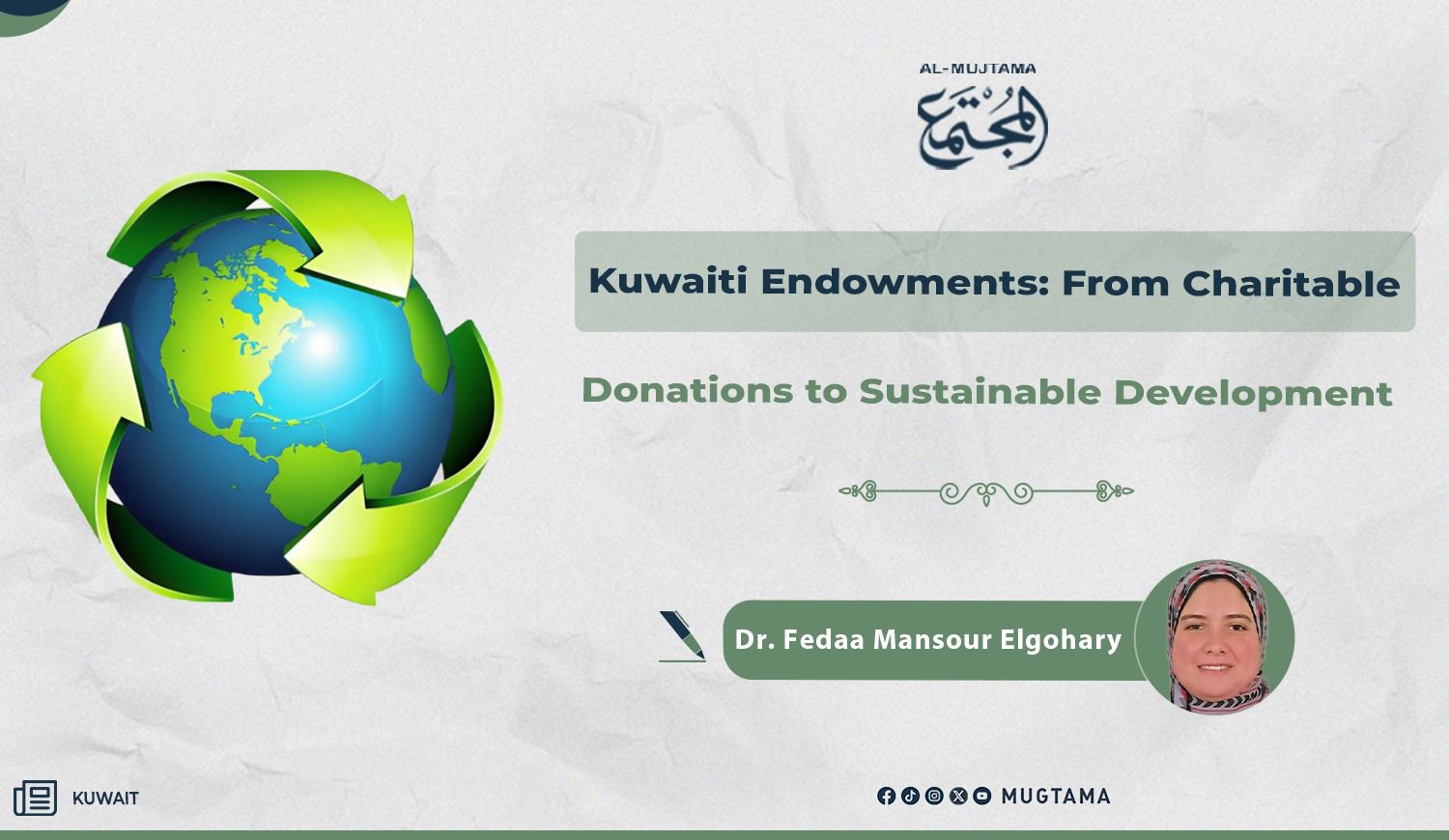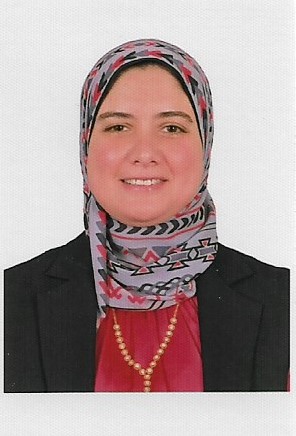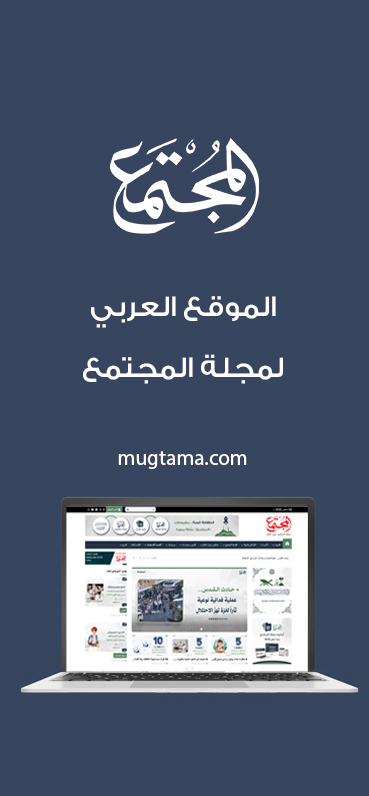Kuwaiti Endowments: From Charitable Donations to Sustainable Development

Kuwait's endowment
experience is a leading model for transforming charitable
work from mere urgent aid into an effective tool for economic and social
development. Endowments are no longer just individual donations and
initiatives; they have become an integrated institution that manages and
invests its funds with high professionalism to ensure the sustainability of its
returns. This has been embodied by the General Secretariat of Endowments since
its establishment in 1993.
A Qualitative Shift: The General Secretariat of Endowments
Although
institutional endowment work in Kuwait started
late and initially relied on private management, the need to organize this
sector led to a gradual development in the government apparatus. In 1921, the
Department of Endowments was established as the first centralized institutional
body responsible for setting regulations and systems for the development of
endowments. This development continued until Kuwait's independence, when the
Department of Endowments became a ministry in January 1962, and then Islamic
Affairs were added in October 1965 to become the Ministry of Awqaf and Islamic Affairs.
The most
significant and important transformation occurred in 1993, with the
establishment of the General Secretariat of Endowments by Amiri Decree. The
General Secretariat of Endowments was not just an administrative addition; it
was a qualitative leap in terms of institutional form and the philosophy of
endowment work. The Secretariat worked to activate endowments as a
developmental tool through:
- Endowment Investment: Instead of directly spending the
endowment's assets, they are invested in well-studied projects such as
real estate, stocks, and commercial ventures. This approach ensures the
growth of the endowment and diversifies its income sources, increasing its
ability to fund more charitable projects.
- Diversification of Expenditure: The Secretariat's role was not
limited to supporting mosques and schools; it expanded to include vital
areas such as scientific research, healthcare, community development, and
supporting youth projects.
Endowment Funds: Flexible Mechanisms for Donation
To give citizens
and residents the opportunity to participate in charitable work effectively and
flexibly, the General Secretariat of Endowments created the endowment funds
system. This is an organizational framework developed internally to enable the
Secretariat to achieve its strategic vision for promoting and developing
endowments. Kuwait has established about 11 endowment funds across the country
to expand the practice of endowment work through the cooperation of public
bodies with official institutions to achieve common goals, which are to revive
the Sunnah of endowments by launching social development projects,
inviting endowments for them, and spending the returns of each fund on its
designated purpose. These funds are specialized investment vehicles whose funds
are allocated to achieve a specific charitable goal through work programs that
achieve the highest developmental return and an integrated vision that takes
into account the needs and priorities of society. Among the most prominent of
these funds are:
- The Endowment Fund for Health
Development: This
fund is an essential tool to support the efforts of institutions that work
to care for public health. It finances the construction of hospitals, the
provision of medical equipment, and the support of health research. To
achieve these goals, the General Secretariat has allocated endowment
assets worth about 5 million Kuwaiti dinars to be spent from their returns
on the various activities of the fund.
- The Endowment Fund for Culture and
Thought: This fund
focuses on spreading serious culture and developing creative thinking. The
General Secretariat has allocated assets worth one million Kuwaiti dinars
to be spent from their returns on the fund's activities, based on the
importance of culture and thought in Islamic heritage and community
development. The fund's efforts focus on media outreach, organizing
seminars, encouraging talent, and developing a culture for children.
- The Endowment Fund for Scientific
Development: The fund
works to support scientific research and education by spreading a
scientific spirit, nurturing talent, and supporting achievements. The
returns from this fund are used to finance innovative scientific research
and studies that serve national development, provide grants to talented
students and provide ways to develop their abilities, and coordinate and
cooperate with scientific institutions inside and outside Kuwait.
- The Endowment Fund for the Care of
People with Disabilities and Special Needs: This fund focuses its efforts on
rehabilitating people with special needs, alleviating their suffering, and
working for their integration into society. The General Secretariat has
allocated endowment assets worth 5 million Kuwaiti dinars to be spent from
their returns on the various activities of the fund.
- The Endowment Fund for Family Care: This fund was established to support
the family and enhance its cohesion through charitable social support. It
aims to provide appropriate care for the family, create a suitable
atmosphere for its stability, in addition to addressing social problems.
The fund also supports the revival of the Sunnah of in-kind and
cash endowments and encourages volunteers to specifically support the
fund.
- The Endowment Fund for
Environmental Protection:
This fund was established in 1995 to support sustainable development
efforts and work to find the best ways to protect, develop, and preserve
the environment so that it is sound and healthy for future generations.
This is done by coordinating policies and programs to support government
and private agencies working in the field of pollution control and
environmental rehabilitation. The fund focuses on financing environmental
protection projects, training national cadres in environmental work,
implementing pollution control projects, in addition to spreading
environmental awareness among community members to preserve the Kuwaiti
environment as pure and clean.
Evaluating Kuwait’s Endowment Experience
Despite the
relatively short lifespan of the endowment funds experience in Kuwait, some
indicators can be used to judge its success, including:
- The number of endowers increased from
408 before the establishment of the Secretariat to 538 after its
establishment, an increase of 130 new endowers, which means that what the
Secretariat achieved equals 24.2%, with an annual increase rate of 12.5
times after the establishment of the Secretariat compared to the annual
rate before its establishment.
- The volume of endowments established
within 3 years after the establishment of the Secretariat amounted to more
than 4.2 million Kuwaiti dinars, which is about 18 times the volume of
endowments established in 1993, the base year for the Secretariat.
- The total value of endowments
increased from 98 million Kuwaiti dinars before the establishment of the
Secretariat to 131.7 million dinars after its establishment.
- The growth of the net returns from
endowment investment after the establishment of the Secretariat amounted
to about 10.1 million Kuwaiti dinars, which is about 204% of the volume of
returns before the establishment of the Secretariat. The growth of spending
on endowment development activities and projects also increased by more
than 4 million Kuwaiti dinars, an increase of 594% of the volume of
spending before the establishment of the Secretariat.
- The institutional development has
brought about a qualitative leap in the policies of investing endowment
funds, in the areas of spending their returns, and in the tools of their
distribution, whether in the form of funds or Kuwaiti endowment projects.
A Global Endowment Model
Kuwait's
experience in the field of endowments offers an important lesson for the whole
world. It shows that endowments, if managed with professionalism, transparency,
and governance, can be transformed into an economic and social lever capable of
achieving long-term sustainable development. This success would not have been
possible without the forward-looking vision that transformed the traditional
concept of endowments into a modern economic institution that contributes
effectively to building society.












